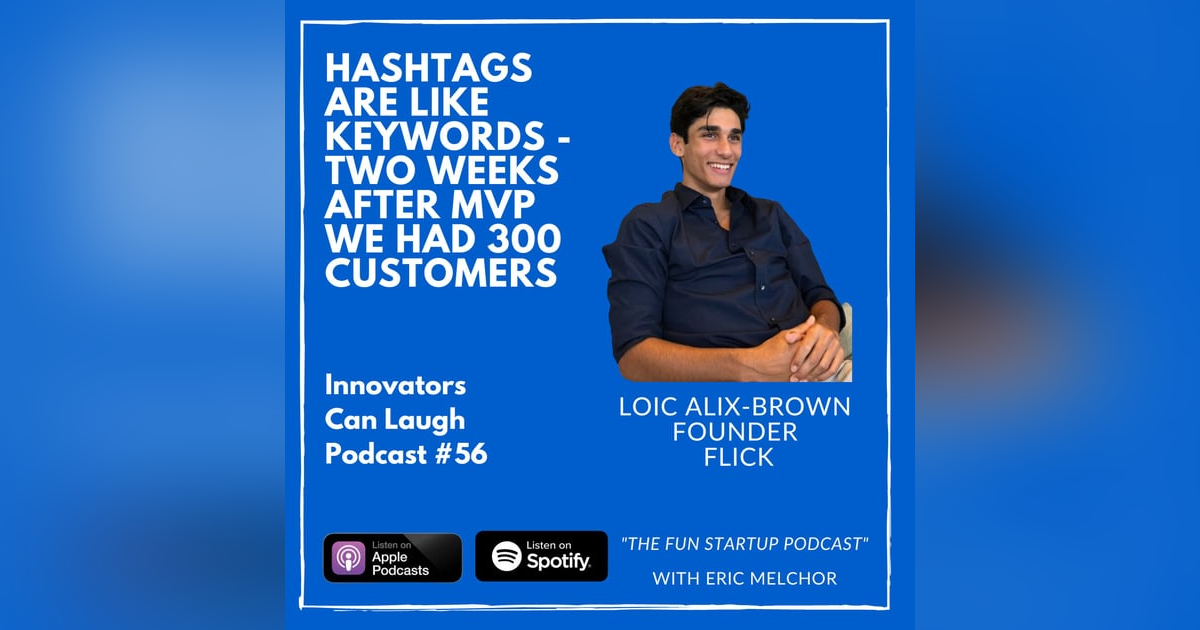Hashtags are like keywords - two weeks after MVP we had 300 customers

Hey ICL fans. Today we’re chatting with Loic Alix-Brown, co-founder of Flick. Flick is an all-in-one Instagram scheduling, hashtag, and analytics tool. The journey of Flick is quite interesting as the initial MVP was created in two weeks and 2 weeks later they had 200 paying customers. If you think that is impressive, wait till you hear what the platform can do from a hashtag standpoint.
If you’re wanting to elevate your online presence especially with the use of hashtags, this is the episode for you. Let’s dive in.
- 0:10 – why was there a need for Flick?
- 1:40 – launched MVP in 2 weeks and two weeks later had 200 paying customers
- 2:27 – what do customers find so exciting about the Flick platform
- 4:30 – Instagram provides very little insights on hashtags
- 5:55 – how Flick was created
- 8:04 – how analytics helps improve the content ideation process
- 10:25 – how Loic managed 15+ social accounts when working at an agency
- 12:28 – first thing you do when you sign up for Flick
- 14:45 – average additional reach that someone can expect from using hashtags the smart way
- 17:23 – the one hire that was instrumental for the company
- 20:25 – process for gathering customer feedback
- 21:49 – the time Loic incorrectly sent a mass email to the entire database and got 300 calls booked in the next 6 weeks
- 24:35 – the roadmap, TikTok is coming
- 26:00 – Shakira
- 26:45 – a funny reason Flick would go seek an additional $100M investment
- 27:45 – a funny phobia Loic has











